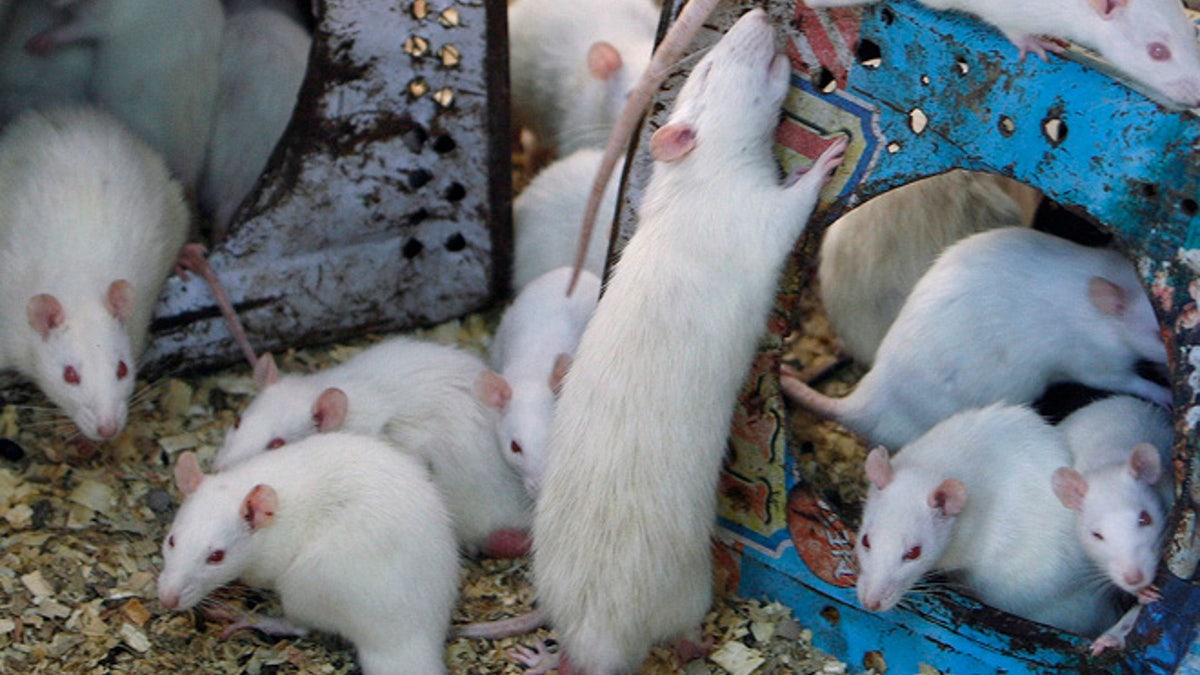
June 27, 2009: White mice crawl around tins surrounded by sawdust. (Reuters)
The National Institutes of Health has invested more than $80,000 into studying whether mice stutter.
A $16.5 million project examining genetic mutations that may lead to human stuttering recently released some of its findings: genetically-engineered mice that sound different.
The portion of the study dedicated to developing the mice that model human stuttering in the study represent less than 0.5 percent of the costs of the research to date, according to the NIH—an estimated $82,822.31.
“You might not expect mice to tell us much about human speech disorders,” the agency said in a write-up of the study last week. “But, in fact, a new study from researchers at Washington University in St. Louis and the National Institute on Deafness and Other Communication Disorders (NIDCD) shows that mice could teach us a lot about what makes people stutter, and perhaps also how to help them stop.”
The results, published in Current Biology, found that mice that were genetically engineered to carry a trait linked to human stuttering showed “changes in the pattern of their calls.”
“Many aspects of the vocalizations of our mice with the mutation are normal,” said Terra Barnes, Ph.D., of Washington University in St. Louis, who is working on the study. “Where they differ is in the timing and temporal sequencing of their vocalizations. Their vocalizations have longer pauses than those of their littermates without the mutation, and there is evidence for more stereotyped repetitions in their vocalizations. These are very similar in some ways to the stuttered speech of humans who carry the same mutation.”
























